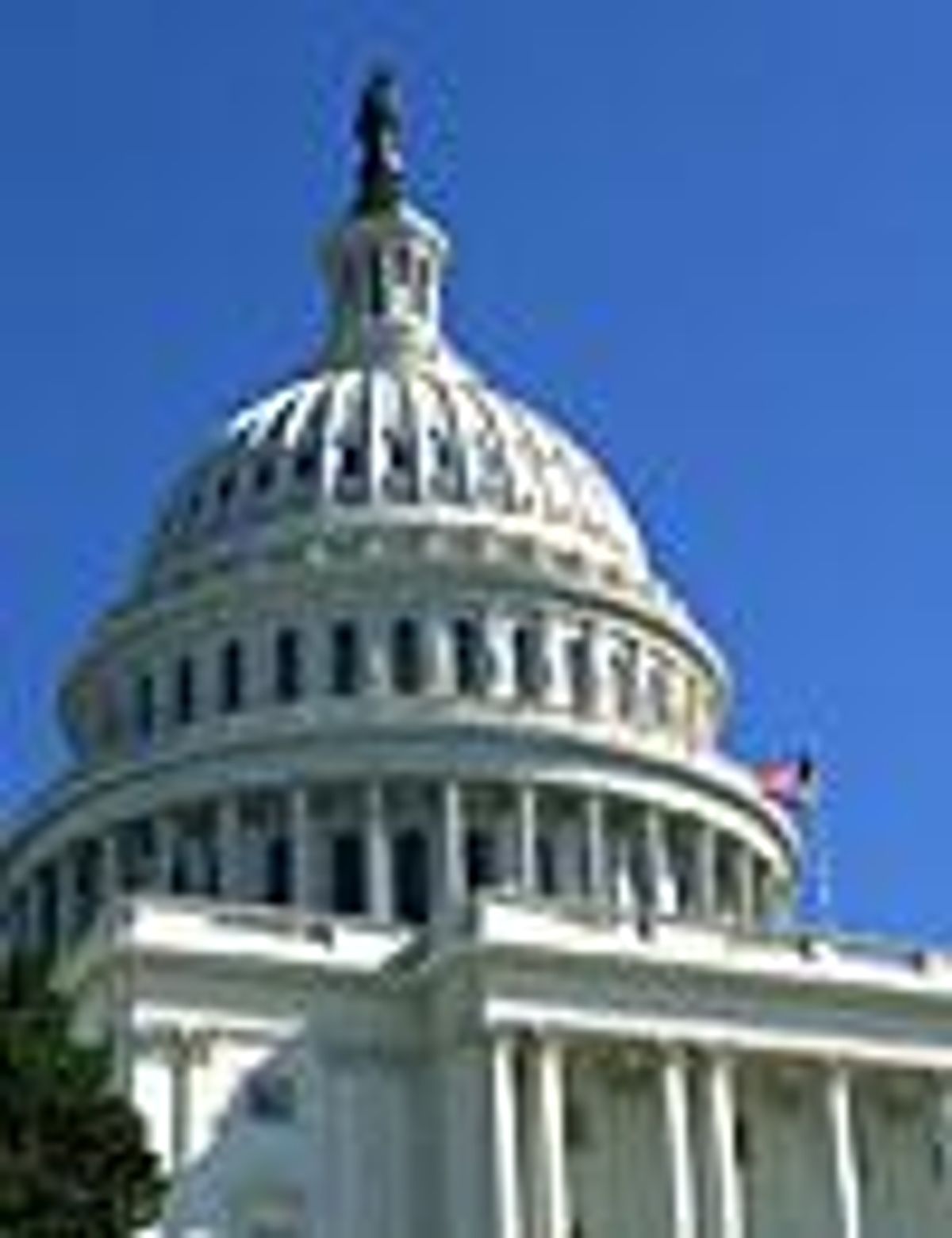Senate Democrats
are trying to force President Bush to sign hate crimes
legislation he has threatened to veto by attaching it to a
massive bill funding the Defense Department and the
Iraq war.
Writing violent
attacks on gays into federal hate crime laws is related
to the war because both are strikes against terrorism,
according to a Republican senator and other supporters
of the measure.
''We simply
cannot tolerate violence against our own citizens simply
because of their differences,'' said Sen. Gordon Smith,
R-Ore., who is sponsoring the legislation with Sen.
Edward M. Kennedy, D-Mass. ''We cannot fight terror
abroad and accept terror at home.''
That's a stretch,
not to mention a heavy-handed maneuver that ''hijacks''
a bill that includes a pay increase for troops in wartime,
said Sen. John Cornyn, R-Texas.
''I think it's
shameful we're changing the subject to take care of
special interest legislation at a time like this,'' Cornyn
said on the Senate floor.
Attaching
hard-to-pass legislation to must-pass bills is a strategy
for both parties. Success means forcing squeamish
lawmakers to technically vote for controversial
policies embedded in massive spending bills.
The White House
has contended that state and local laws already cover the
new crimes defined under the bill and there was no need to
provide federal sanctions for what could be a wide
range of violent crimes.
The hate crimes
amendment, which passed as a stand-alone bill in the
House this year, is especially tempting for majority
Democrats because of Bush's weakened, lame-duck status
and some support for the measure among Republicans.
The underlying bill would authorize military spending
priorities for fiscal 2008.
That discussion
began on the Senate floor even before it was brought up
underscored the sensitivity for the White House.
GOP leaders were
careful not to attack the legislation itself, focusing
instead on what they said was the ''non-germane'' nature of
the amendment to the overall spending bill.
''There may be a
time and place for a hate crimes discussion, but it is
certainly not now when national security legislation is
being held up,'' said Senate Republican Conference
Chairman Jon Kyl of Arizona. ''Forcing a vote on the
so-called hate crimes amendment shows an utter lack of
seriousness about our national defense.''
Retorted Sen. Bob
Menendez, D-N.J.: ''For some, it never seems to be the
right time or the right place.''
Under current
federal law, hate crimes apply to acts of violence against
individuals on the basis of race, religion, color or
national origin. Federal prosecutors have jurisdiction
only if the victim is engaged in a specific federally
protected activity such as voting.
The House bill
would extend the hate crimes category to include sexual
orientation, gender, gender identity or disability and give
federal authorities greater leeway to participate in
hate crime investigations. It would approve $10
million over the next two years to help local law
enforcement officials cover the cost of hate crime
prosecutions.
Federal
investigators could step in if local authorities were
unwilling or unable to act. (Laurie Kellman, AP)


















































































